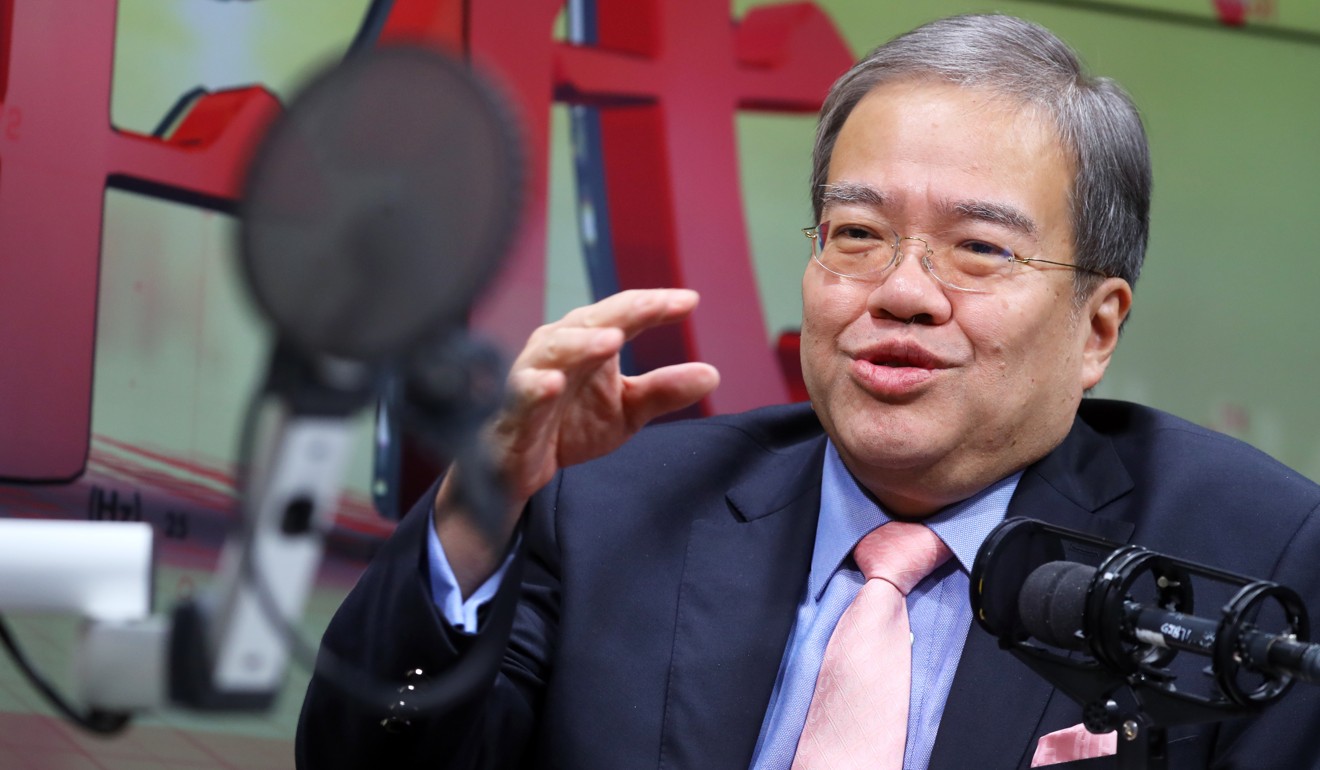
Allow specialist doctors trained overseas to practise in Hong Kong to ease staffing crisis, former Hospital Authority chairman Anthony Wu says
- Wu says doctors trained at world’s top 50 or 100 medical schools should be allowed to practise in city without taking another exam
- Full registration in Hong Kong currently requires foreign-trained doctors to do extra licensing exam and internship of more than one year
Specialist doctors trained at top overseas medical schools should be allowed to work in Hong Kong without examination if they have parents from the city, a former chairman of the Hospital Authority has said.
The proposal, which came amid a staffing crisis in Hong Kong’s public health care system, was floated by Anthony Wu Ting-yuk – now a member of the Standing Committee of the Chinese People’s Political Consultative Conference – on Friday.
He said there was no need to make experienced doctors from overseas sit another round of licensing exams.
“When some doctors have already reached a certain level overseas, which is recognised worldwide, why do we need them to come back for another exam?” Wu asked, as he raised his proposal on a radio programme.
Hong Kong’s public health care system has long been plagued by staff shortages, particularly during the flu season peaks, when thousands cram into accident and emergency departments.
Doctors decry migrant scheme blamed for stretched hospitals
To attract more overseas doctors to Hong Kong, the government allows them to practise without taking a licensing exam, for no more than three years, under a limited registration scheme.
As of January, 12 foreign doctors worked at public hospitals under the scheme, according to the authority.
Wu said on Friday a full registration in Hong Kong required doctors to go through a licensing exam and internship of more than one year.
“This has made many doctors unwilling to come back,” Wu said.

He said doctors trained at the world’s top 50 or 100 medical schools should be allowed to practise in Hong Kong without taking another exam, on condition they were equipped with a specialist qualification and were of Hong Kong descent.
To make sure workload at the public sector was relieved, Wu said foreign-trained doctors might be required to work at public hospitals for the first three to five years.
Wu also said doctors trained in mainland China would not be eligible under the scheme, as medical schools there did not provide specialist qualifications.
He did not say how many foreign trained doctors the city should employ.
Medical sector lawmaker Dr Pierre Chan Pui-yin, who is employed by the Hospital Authority, said there would be few people who match Wu’s specifications.
“It seems the figures [Wu] has are not too accurate,” Chan said.
To combat the winter flu surge, Chan said any additional doctors should be deployed to accident and emergency, paediatric and inpatient departments to handle the increased service demands.
Opinion: Four ways to ease overcrowding in Hong Kong’s public hospitals
Wu’s suggestion is similar to a scheme in Singapore, where graduates from 158 medical schools in 28 regions and countries may apply for conditional registration to work in the country, providing they work at an approved health care institution under the supervision of a fully registered doctor for a period of time.
The Lion City also tries to attract Singaporeans midway through their medical studies abroad to return to work by offering to pay up to S$50,000 (HK$289,000) a year for their final three years of study.
Both the University of Hong Kong and Chinese University are on the list of schools approved by Singapore’s medical council.
Before Hong Kong’s return to Chinese rule in 1997, doctors from Commonwealth nations were also allowed to practise in the city without taking another exam.
Former Hospital Authority chief executive Dr Vivian Wong Taam Chi-woon agreed that Hong Kong should learn from Singapore.
Wong, however, noted that a school’s ranking did not always correlate to the quality of its graduates.
“University rankings are based on research and other factors, it is not relevant to how the graduates treat patients,” she said.
Hong Kong currently has more than 14,000 registered doctors, of whom about 6,300 are employed by the Hospital Authority.

